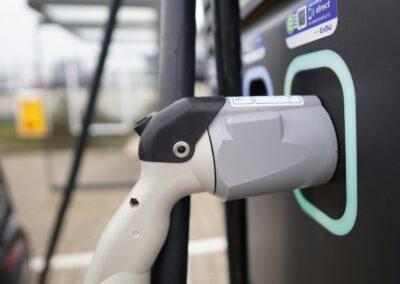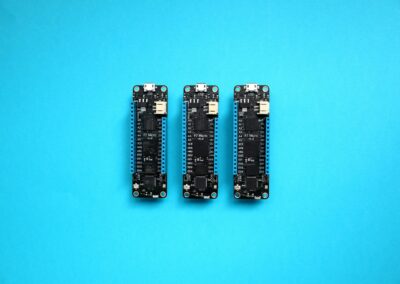Optimizing Energy Use with Demand Response Programs in Intelligent HVAC Systems
Understanding Demand Response in Intelligent HVAC Systems
Demand response programs in intelligent HVAC systems represent a transformative approach to managing energy consumption, particularly in dynamic and rapidly growing regions like Saudi Arabia and the UAE. These programs enable buildings to adjust their energy usage based on real-time signals from the power grid, thereby reducing peak energy loads and contributing to grid stability. Intelligent HVAC systems, equipped with advanced sensors and AI capabilities, play a crucial role in these programs by automatically responding to fluctuations in energy demand. In cities like Riyadh and Dubai, where energy consumption can be substantial due to extreme temperatures, demand response offers a strategic solution for both energy efficiency and cost savings.
The integration of AI in HVAC systems enhances the effectiveness of demand response programs. AI algorithms can predict energy usage patterns, optimize HVAC operations, and make real-time adjustments to reduce energy consumption during peak periods. This not only lowers operational costs but also ensures that buildings maintain a comfortable indoor environment without compromising on energy efficiency. For business executives and mid-level managers in Saudi Arabia and the UAE, adopting demand response-enabled intelligent HVAC systems can lead to significant financial and environmental benefits.
Furthermore, the adoption of demand response programs aligns with the broader sustainability goals of the region. As Saudi Arabia and the UAE continue to invest in renewable energy sources and sustainable infrastructure, intelligent HVAC systems with demand response capabilities support these initiatives by reducing reliance on fossil fuels and enhancing energy grid resilience. This proactive approach to energy management is essential for achieving long-term sustainability and economic growth in the region.
Enhancing Grid Stability through Intelligent HVAC Systems
Grid stability is a critical concern for energy providers, especially in regions experiencing rapid urbanization and economic development. Demand response programs in intelligent HVAC systems contribute significantly to grid stability by mitigating the impact of peak energy loads. During periods of high energy demand, these systems can temporarily reduce their energy consumption, alleviating pressure on the grid and preventing potential outages. This capability is particularly valuable in cities like Riyadh and Dubai, where energy demand can surge due to high temperatures and increased air conditioning use.
Blockchain technology can further enhance the implementation of demand response programs in HVAC systems. By providing a transparent and secure platform for energy transactions, blockchain ensures that energy reductions are accurately recorded and incentivized. This technology can facilitate the creation of decentralized energy markets, where buildings equipped with intelligent HVAC systems can participate in demand response initiatives and receive financial rewards for their contributions to grid stability. For businesses in Saudi Arabia and the UAE, leveraging blockchain for demand response programs offers a unique opportunity to optimize energy use while benefiting from new revenue streams.
The Metaverse, with its potential to simulate and optimize building operations, can also play a role in enhancing demand response programs. Virtual simulations of HVAC systems within the Metaverse can help engineers and building managers design more efficient demand response strategies, ensuring that energy reductions are achieved without compromising indoor comfort. For entrepreneurs and business leaders in Riyadh and Dubai, utilizing the Metaverse for HVAC system planning and management can lead to innovative solutions that drive both energy efficiency and grid stability.
Leveraging Generative Artificial Intelligence for Demand Response Optimization
Generative Artificial Intelligence (GAI) is at the forefront of optimizing demand response programs in intelligent HVAC systems. In the context of Saudi Arabia and the UAE, where efficient energy management is paramount, GAI can provide unprecedented capabilities for real-time energy optimization. GAI algorithms can analyze vast amounts of data from HVAC systems, predict energy demand patterns, and generate optimal strategies for reducing energy consumption during peak periods. This level of precision ensures that demand response programs are highly effective and contribute to significant energy savings.
Management consulting firms in the region are increasingly incorporating GAI into their service offerings to help businesses implement demand response programs. Executive coaching services emphasize the importance of understanding and leveraging GAI for energy management as part of broader change management strategies. Effective communication about the benefits and operational aspects of GAI-driven demand response programs is crucial for successful adoption and integration.
For business success, particularly in the competitive markets of Riyadh and Dubai, embracing intelligent HVAC systems with demand response capabilities powered by GAI can lead to substantial advantages. Improved energy efficiency directly translates to lower operational costs and enhanced sustainability, which are critical factors for long-term business growth.
#DemandResponse #IntelligentHVAC #EnergyEfficiency #GridStability #HVAC #SaudiArabia #UAE #Riyadh #Dubai #AIinHVAC #BlockchaininHVAC























